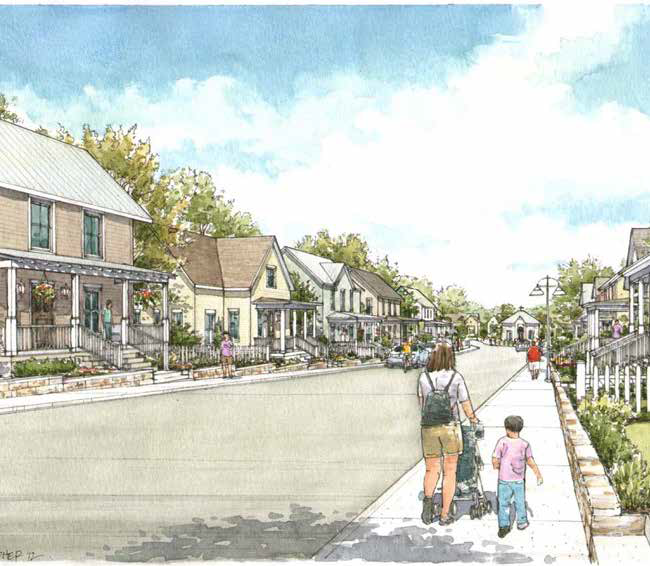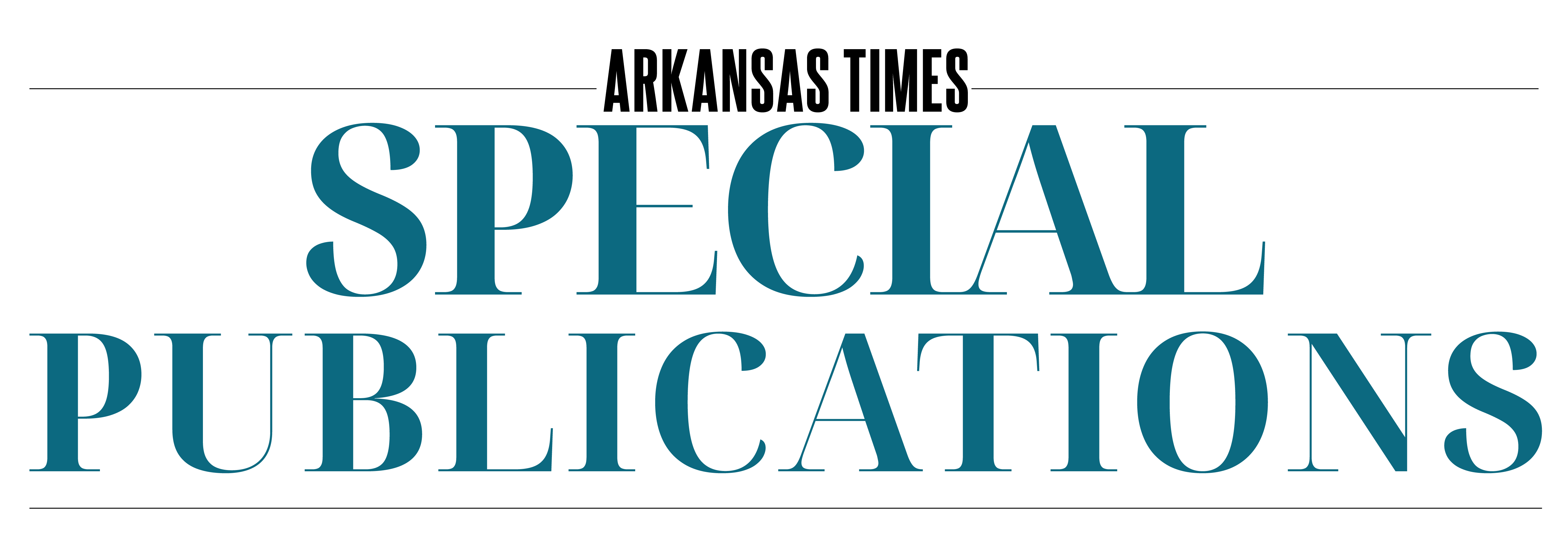Partners for Better Housing, a nonprofit real estate developer, is piloting an innovative approach to mixed-income homeownership in a new construction neighborhood located in south Fayetteville. The Willow Bend neighborhood is a public-private partnership of the city of Fayetteville and many other community partners and will eventually include 80 high-quality, single-family homes. Using what is called a shared equity model, Partners for Better Housing provides a discount to income-qualified homebuyers that decreases their mortgage amount to an affordable level. In exchange for the subsidy, the buyer agrees to a resale formula, which becomes the basis for multigenerational homeownership opportunities for working families. Partners for Better Housing has named this the “Pay It Forward” program.
Willow Bend is the first development for the “Pay It Forward” program. One-third of the homes in Willow Bend will be reserved for households making less than 80 percent of the median family income for the area. One-third of the homes will be reserved for moderate-income households and the final one-third will be sold at market rate to any interested buyers. All of the homes are required to be owner-occupied. Families making less than 80 percent of the median family income will be eligible for the “Pay It Forward” program, which will help them qualify for a lower mortgage with a resulting lower monthly payment.
Interested buyers will go through an income verification process to qualify for the program. Eligible buyers will talk to a lender to see if they qualify for a mortgage; if not, they may need to spend time working on their credit or saving for a down payment. Once a buyer is approved for a mortgage loan, Partners for Better Housing will commit $35,000 of assistance to make the mortgage more affordable. Affordable housing is defined as a mortgage payment being no more than 30 percent of household income.
The “Pay It Forward” subsidy from Partners for Better Housing is repaid when the buyer sells the home or after 30 years of occupancy, whichever comes first. A deed restriction, a legal document filed at closing, will ensure repayment of the subsidy. The buyer will further agree to limit the amount of profit they make upon sale of the home (capped at 2 percent annual appreciation) to ensure a similar level of affordability for the next buyer.
The “Pay It Forward” funding was made possible by a $1 million infrastructure cost-share from the city of Fayetteville, stipulated as a direct pass-through to eligible low-income homebuyers. Partners for Better Housing’s “Pay It Forward” is the first shared equity homeownership program in Arkansas. If successful, the Willow Bend model will create the foundation for a new regional affordability fund that could be used for a second ground-up development, in partnership with private residential development, and/or on a scattered site basis.
Studies show that stable, safe and affordable housing benefits homebuyers in many ways, leading to greater economic security and educational achievement. Providing opportunities for homeownership to lower-income families allows them to build wealth in a way that is often not attainable by other means. The Willow Bend model of reserving a percentage of new construction for low- and moderate-income homebuyers, as well as using high design standards and quality construction to minimize long-term maintenance and utility consumption costs, creates an attainable opportunity for these buyers to reach their homeownership goals and ensures they have access to amenity-rich communities.
The benefits to the community include stabilized, stronger, safer neighborhoods, socioeconomic diversity, better school performance and job creation through new construction. Because the subsidy grows over time, this model ensures public investments go further and do more, it addresses racial and economic segregation in communities that are experiencing gentrification, and provides for sustainable, scalable affordable housing.
Increasingly, shared equity homeownership programs face challenges in obtaining subsidy dollars, partly because of shrinking federal funding, but also because of a shift in how municipalities are choosing to use their federal dollars. After the Great Recession in 2008, many municipalities began prioritizing affordable rentals over supporting owner-occupied housing. Exacerbating these challenges is the increasing gulf between escalating housing costs and stagnant income growth. Local policy makers are often concerned about limiting the use of public dollars for wealth building, opting instead for a more immediate “bang for the buck” course of action. This policy approach helps the most people in the most immediate way but does not recognize the long-term generational benefits of homeownership and the broad societal benefits of mixed-income neighborhoods. Local policy makers also frequently succumb to the vocal minority (NIMBYism).
Fast-growing cities and regions, in particular, must act quickly to acknowledge that housing is critical infrastructure for sustained economic growth. If your policy goals include racial equality, talent retention, workforce development, economic mobility, self-sufficiency or improved educational attainment, consider adding shared equity homeownership programs to your policy toolkit.
Keaton Smith is vice president of Iberia Bank in Fayetteville. Tiffany Hudson is executive director of Partners for Better Housing.
How one grant can help many families: Willow Bend: A case study of shared equity homeownership.



